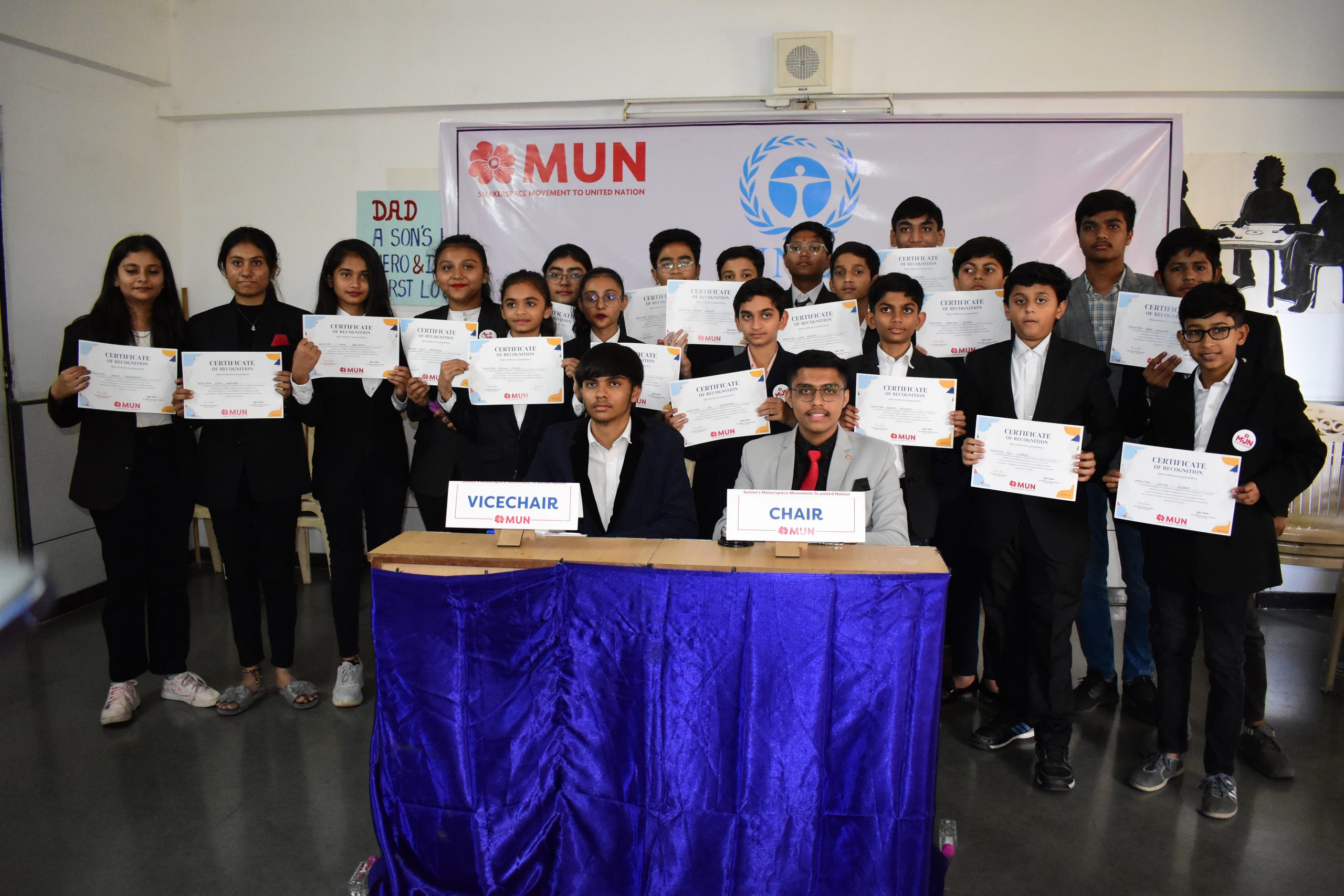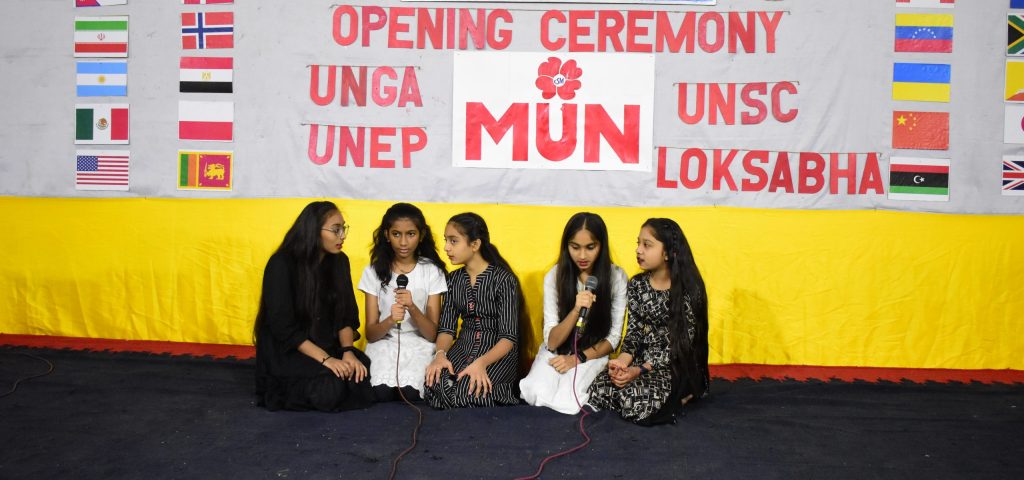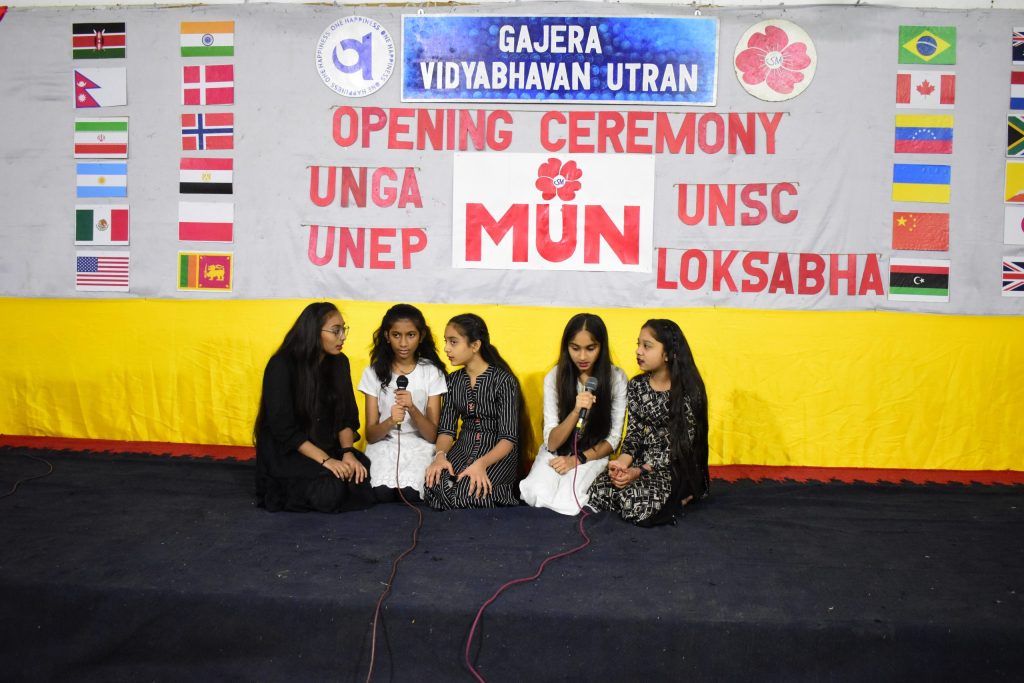
Gajera Vidyabhavan Utran recently hosted the first-ever SM-MUN conference in Gujarati. This conference was put on by SM-MUN, the Smakerspace Movement Towards Model United Nations. The event was a huge success, with 79 students from all over Surat taking part in debates and discussions about a wide range of important global issues.
At the SM-MUN conference, there were four committees: the Lok Sabha Parliament of India, the United Nations Environment Programme (UNEP), the United Nations General Assembly (UNGA), and the United Nations Security Council (UNSC). Each committee was given a different topic to debate, and it was up to the students to represent the views and interests of different countries and groups.
The Lok Sabha Parliament of India committee talked about the National Education Policy, and people had a lively and helpful discussion about the policy’s pros and cons. Climate change is a very important issue, and the UNEP committee worked on it. Students talked about how to lessen the effects of climate change on the environment and on people. The Sustainable Development Goals (SDGs) were the focus of the UNGA committee. Participants looked at ways to reach the SDGs and make sure they are part of national development plans. The UNSC committee also talked about the rise of extremist groups, the spread of nuclear weapons, and the ongoing wars in Syria and Yemen.
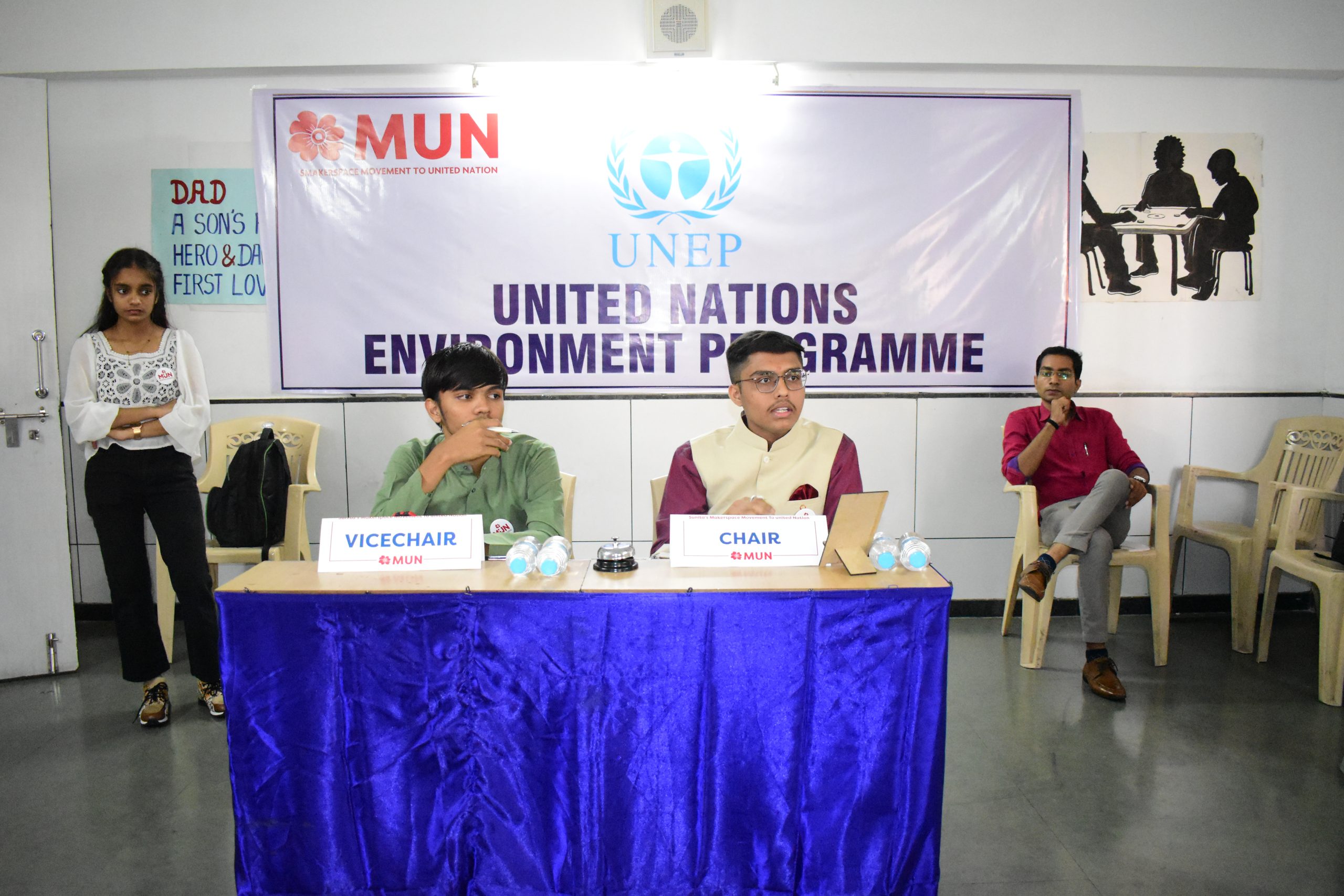
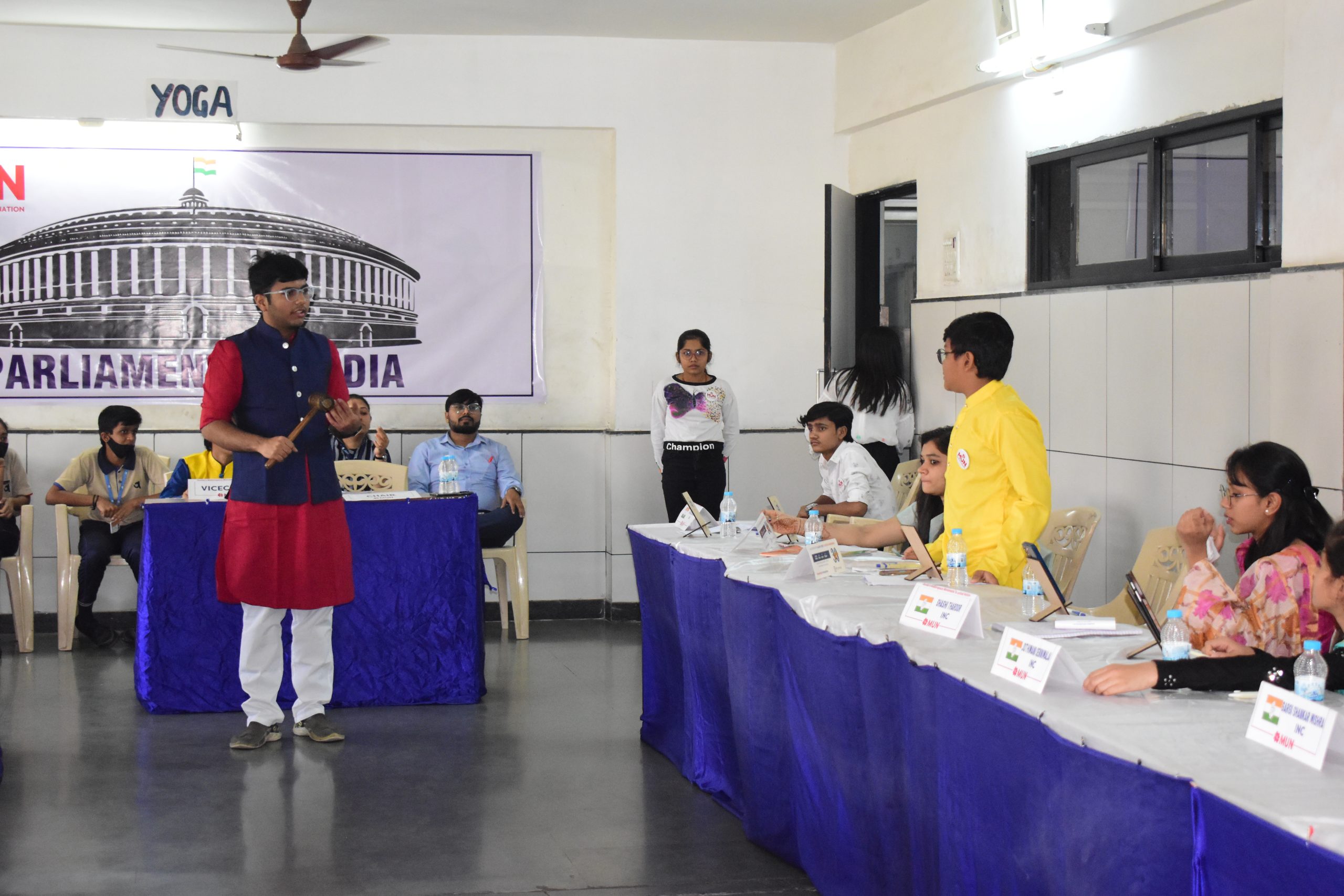
Students had a great chance to improve their critical thinking, public speaking, and diplomatic skills at the SM-MUN conference. By participating in the event, students learned more about how complicated global issues are and how hard it is for international policymakers to deal with them. They also better understood how important good communication and negotiation are for finding good solutions to hard problems.
The success of the SM-MUN conference shows how important student-led projects can be and how young people are becoming more interested in global issues and diplomacy. As the world continues to face a wide range of complicated problems, it is important that we help future leaders develop the skills and knowledge they will need to deal with these problems in a constructive and cooperative way.
